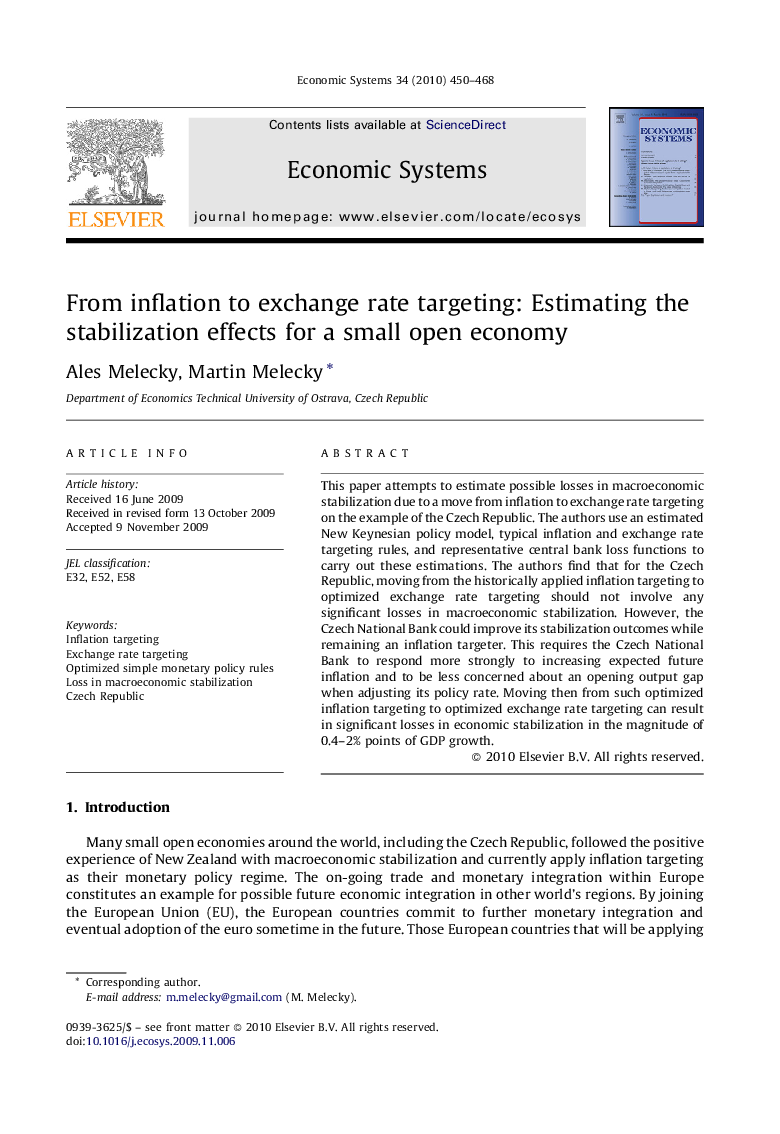| Article ID | Journal | Published Year | Pages | File Type |
|---|---|---|---|---|
| 5056473 | Economic Systems | 2010 | 19 Pages |
This paper attempts to estimate possible losses in macroeconomic stabilization due to a move from inflation to exchange rate targeting on the example of the Czech Republic. The authors use an estimated New Keynesian policy model, typical inflation and exchange rate targeting rules, and representative central bank loss functions to carry out these estimations. The authors find that for the Czech Republic, moving from the historically applied inflation targeting to optimized exchange rate targeting should not involve any significant losses in macroeconomic stabilization. However, the Czech National Bank could improve its stabilization outcomes while remaining an inflation targeter. This requires the Czech National Bank to respond more strongly to increasing expected future inflation and to be less concerned about an opening output gap when adjusting its policy rate. Moving then from such optimized inflation targeting to optimized exchange rate targeting can result in significant losses in economic stabilization in the magnitude of 0.4-2% points of GDP growth.
